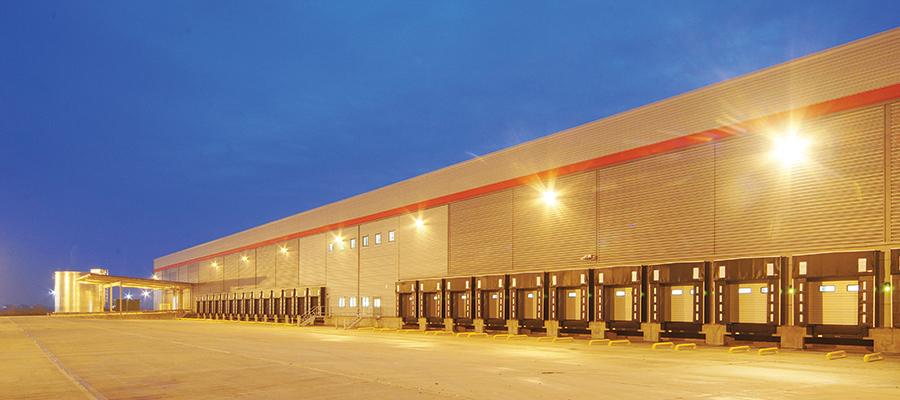🕒 Article read time: 4 minutes
Consolidating urban deliveries

Urban congestion and the resulting emissions have long been the focus of city councils and local authorities, with an array of localised initiatives, such as air quality schemes and congestion charging, designed to reduce city centre traffic. And now, we are hearing of more organisations being approached by local councils with requests to consider setting up a consolidation centre.
Logistics Magazine talks to Paul Wilson, a Supply Chain Consultant at Logistics UK who, with the help of the Supply Chain Consultancy (SCC) team, is helping members with initial feasibility studies and project development to ensure any plans for consolidation are delivered in the most cost-efficient way.
TELL US MORE ABOUT OFFSITE CONSOLIDATION CENTRES
“When it comes to new large retail or commercial developments, it is not uncommon for borough councils to stipulate the construction of an offsite consolidation centre, to reduce vehicle movements into urban centres, or at least instruct a consolidation option to be reviewed as part of the planning process. Yet despite government backing of these consolidation centres, the number open remains relatively low.”
WHY THE INTEREST NOW?
“The actions of London boroughs on consolidation centres seem to make sense at the surface level. Recent commercial projects have shown that vehicles visiting a large office block of 4,500 employees can be reduced by almost 70% if an offsite consolidation centre is used, potentially eliminating up to 100 delivery journeys per day.”
WHAT ARE THE CHALLENGES BUSINESSES MAY FACE?
“While these centres have the potential to reduce the number of large vehicle movements into city centres, and thus lower emissions and road congestion, it can be difficult for companies to justify the business case for using them, because they cost money to set up and maintain. To be financially viable in the long term, the fixed costs need to be shared across more end users.
“Retail vehicle movements play a huge part in the creation of city centre congestion, with often multiple deliveries per day to many outlets, so offsite consolidation for the sector is an option to reduce costs and output of pollutants. However, consolidation of retail deliveries can only be considered and justified in specific cases – it is not a one size fits all solution – and recent planning applications have shown that approximately 50% of deliveries to a retail centre are candidates for consolidation.”
“Consolidation should be viewed by local authorities as one element of a broader strategy for reducing congestion in urban environments. Retiming deliveries to quieter periods and smart road design are equally important.
WHAT SUPPORT SHOULD COUNCILS PROVIDE?
“While consolidation centres can improve the congestion levels in and around city centres – when viewed as part of a comprehensive traffic management system – their effectiveness is largely dependent on the redevelopment of the existing urban environment.
“Local city or borough councils could take the lead here and implement consolidations strategies for their own workplaces. Many of our inner-city councils employ large numbers of people based in central office blocks; this is true of all the inner London boroughs and the larger UK cities. Some of these office blocks may be a great candidate for consolidation. The authorities could help to create multi-user out of town consolidation centres and share the burden of the initial set up costs and the fixed costs associated with a fit for purpose centre. With 70% of office-based deliveries and 50% of retail deliveries suitable candidates for consolidation, this combined approach could make consolidation a more affordable option for many companies, should they decide it is the right approach for their unique business needs.”
“With the introduction of Clean Air Zones and increased pedestrian and cycling infrastructure, access to city centres will become progressively challenging, and the case for creating more consolidation centres looks increasingly persuasive. The key is almost certainly with local authorities, not through the stick that is mandating consolidation, but the carrot that helps cover some of the initial costs.”
*logistics.org.uk/services/supply-chain-consultancy
Published On: 05/11/2020 14:00:53

Comments Section
If you are a Logistics UK member login to add comments.